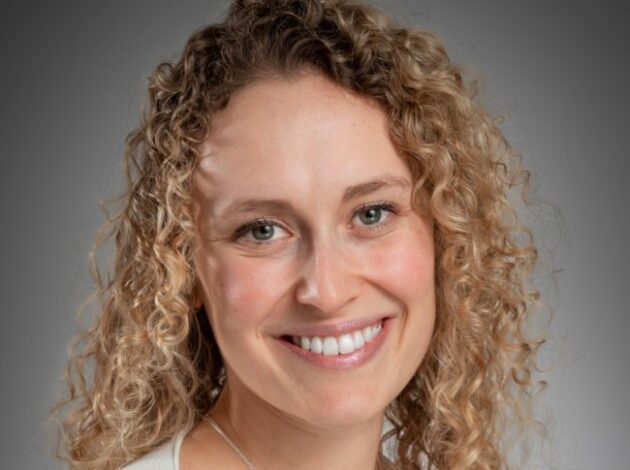The Inspiring Journey of Léa Wenger: From Cambridge Scholar to CEO of Cycle Therapeutics

The name Léa Wenger carries significance across diverse fields: academia, athletics, neuroscience, and now biotechnology entrepreneurship. Best known as the daughter of legendary football manager Arsène Wenger, Léa has carved out a reputation entirely her own, thanks to her ground-breaking research at the University of Cambridge and her leadership in health innovation. At the crossroads of science and social impact, she has emerged as a powerful voice addressing the gender health gap, particularly in women’s health conditions such as endometriosis.
This article delves into her background, education, achievements, family connections, and professional milestones.
Early Life and Family Background
Arsène Wenger and Annie Brosterhous
Léa Wenger was born in 1997 into a family well recognised in the world of sport. Her father, Arsène Wenger, is one of football’s most influential managers, best known for transforming Arsenal Football Club during his long tenure in the English Premier League. Her mother, Annie Brosterhous, is a former French Olympic basketball player. This blend of intellectual discipline and sporting excellence has shaped Léa’s own character, balancing academic drive with athletic ambition.
Léa Wenger and Alphonse Wenger
Through her father, Léa is connected to her paternal grandfather, Alphonse Wenger, who, along with his wife Louise, ran a family business in Duttlenheim, France. These strong Alsatian roots reflect a family tradition of resilience and dedication. As such, Alphonse Wenger is Léa Wenger’s grandfather, providing a direct link between her scientific journey and the Wenger family legacy.
Education
Lycée Français Charles de Gaulle de Londres
Léa Wenger’s academic excellence became evident at an early stage. She studied at the Lycée Français Charles de Gaulle de Londres, where she pursued a Baccalauréat in the Scientific section. She graduated in 2014 with exceptional grades, scoring an impressive 19.34/20 (96.7%), a result that clearly indicated her future as a high achiever.
University of Cambridge – Undergraduate Studies
After excelling at school, she moved on to the University of Cambridge in 2014. There, she enrolled in the rigorous MVST Veterinary Medicine and BA (Hons) Physiology, Development and Neuroscience programme. Her studies combined physiology, pharmacology, pathology, and neuroscience, examined through challenging essays, practicals, and written assessments.
During her undergraduate years, she was actively involved in leadership roles. She served as President and Welfare Officer of the Fitzwilliam College Medical and Veterinary Society and contributed to Polygeia, a global health think tank. She even co-authored a book chapter on the mechanisms of vibration detection in mammals. By 2017, she had already made her mark as both a student leader and researcher.
Doctoral Studies
Léa continued her journey at Cambridge with a PhD in Clinical Neurosciences (2018–2022), supported by the Gates Cambridge Scholarship and MRC-DTP Studentship. Her doctoral research explored cell type diversity using stem-cell–derived cerebral organoids to model neurodegenerative disease and development. This innovative work involved bioinformatics tools and cutting-edge stem cell technologies, positioning her at the forefront of neuroscience research.
Academic Roles and Supervisions
Throughout her time at Cambridge, Léa Wenger contributed to education as a Supervisor in Physiology and Embryology for medical and veterinary students. She taught at Fitzwilliam College, Pembroke College, Selwyn College, and St. Edmund’s College, later extending her expertise to St Catharine’s College. Her reputation for clear explanations and supportive teaching earned her the Graduate Award for Excellence in Teaching in 2020.
Research Collaborations
Alongside her Cambridge work, Léa served as a Visiting Researcher at the European Bioinformatics Institute | EMBL-EBI, where she collaborated with the Brain Repair Centre in Cambridge. She analysed single-cell RNA sequencing data from organoid cultures, bridging molecular biology and computational methods. This multi-disciplinary approach strengthened her ability to interpret complex biological phenomena with both precision and innovation.
Leadership and Sports
The Ospreys
Her leadership extended beyond the laboratory. From 2021 to 2022, she served as President of The Ospreys, a society promoting women in sport at Cambridge University. The organisation works closely with The Hawks to provide bursaries, manage clubhouses, and champion female athletes.
Cambridge University Athletic Club
Léa Wenger was also deeply engaged in athletics, competing in hurdles, high jump, long jump, and heptathlon. She held multiple leadership positions at the Cambridge University Athletic Club (CUAC), including President, Women’s Captain, and Welfare Officer. Her ability to balance high-level academic research with athletic discipline reflects her multifaceted personality.
Professional Career
Altos Labs
After completing her PhD, Léa Wenger transitioned into the biotech industry. In November 2022, she joined Altos Labs in Cambridge as a Scientist I, later promoted to Scientist II in May 2024. Over nearly three years, she developed advanced research skills and gained first-hand experience in translational science, working on projects that bridge fundamental biology with therapeutic potential.
Cycle Therapeutics
In March 2025, Léa Wenger founded Cycle Therapeutics, where she serves as CEO and Founder. The company focuses on tackling the gender health gap, particularly conditions affecting women that have long been under-researched and underserved. Her personal experience with endometriosis has driven her mission to spotlight menstrual cycle research and create novel therapies. By placing women’s health at the centre of scientific innovation, Cycle Therapeutics represents both her passion and her expertise.
Honours and Awards
Léa Wenger has been widely recognised for her outstanding academic and leadership achievements:
-
CSAR PhD Student Award (2021) – for her impactful doctoral research with real-world applications.
-
Graduate Award for Excellence in Teaching (2020) – recognising her contribution to undergraduate supervisions.
-
Fitzwilliam College E.D. Davies Scholarship (2019).
-
Gates Cambridge Scholarship (2019) – one of the most prestigious postgraduate awards worldwide.
-
MRC-DTP PhD Studentship (2019).
-
College Senior Scholarship (2019) for first-class academic performance.
-
Charlton Studentship (2018).
-
John Ray Science Prize (2017) for the best undergraduate research project in biology.
-
Cuthbert Prize for Academic Excellence (2016) and Peter Constable Scholarship (2016).
These awards highlight her consistent pursuit of excellence across teaching, research, and innovation.
Léa Wenger’s Age and Personal Outlook
Born in 1997, Léa Wenger’s age is approximately 28 years old in 2025. Despite being the daughter of a world-renowned figure in football, she has pursued a career uniquely her own. Importantly, she has spoken openly about suffering from endometriosis, a condition that fuels her determination to improve women’s health. Her personal journey gives her professional mission added authenticity and urgency.
Conclusion
The story of Léa Wenger is a powerful testament to how determination, intellect, and empathy can merge to drive positive change. From her early education at the Lycée Français Charles de Gaulle de Londres, to her world-class research at the University of Cambridge, and now to her role as CEO of Cycle Therapeutics, she embodies the next generation of scientific leaders.
Balancing her identity as Arsène Wenger’s daughter with her own professional path, she demonstrates that legacy is not only inherited but also created. Through her work at Altos Labs, her leadership in The Ospreys, and now her vision for Cycle Therapeutics, Léa Wenger continues to inspire as both a scientist and a changemaker.
Her journey reminds us that the combination of personal struggle and scientific innovation can pave the way for breakthroughs that improve lives worldwide.



